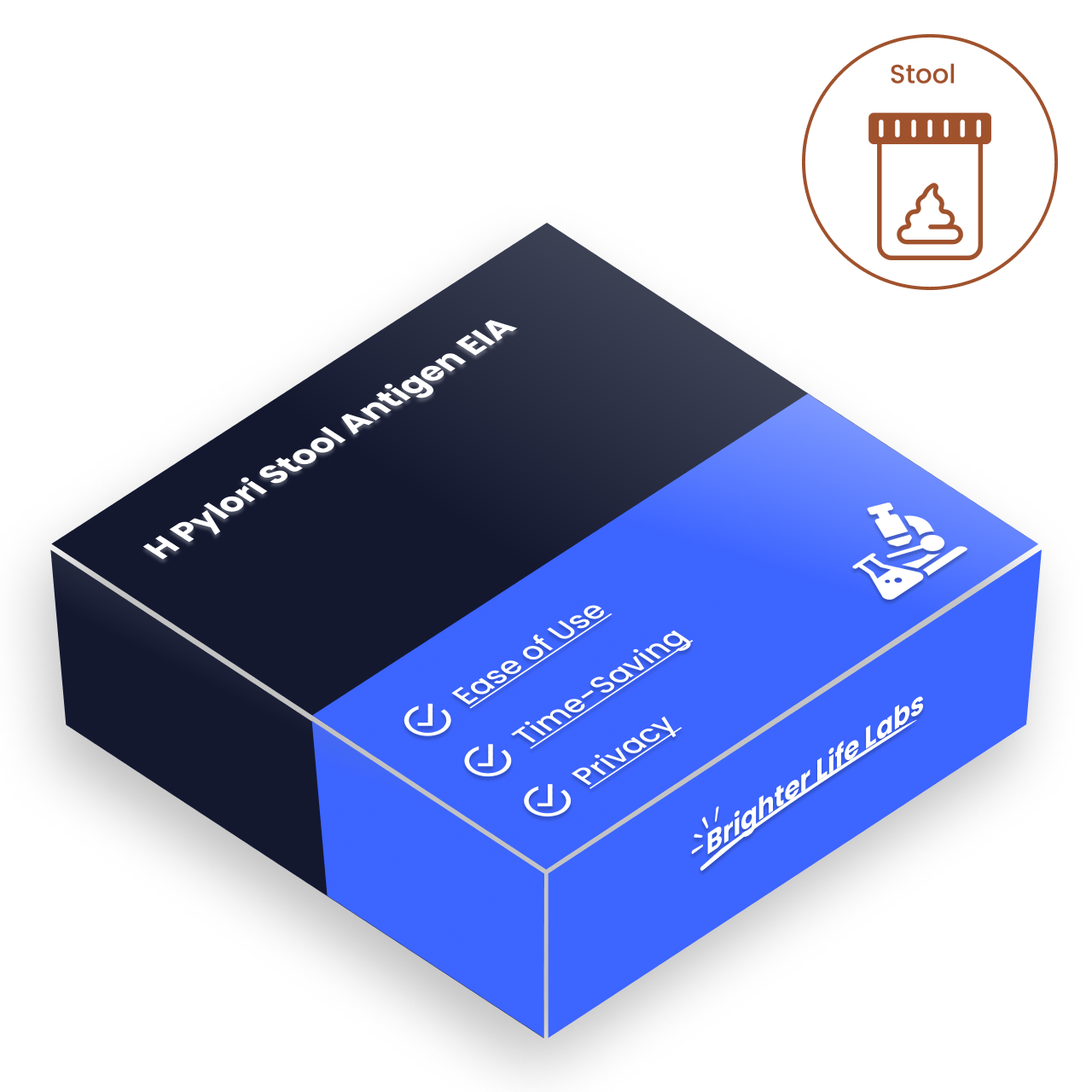Genova
H Pylori Stool Antigen EIA
H Pylori Stool Antigen EIA
Couldn't load pickup availability
The Helicobacter Pylori Antigen Stool test contains 1 test with 1 biomarker.
Description: The H Pylori antigen EIA test is used to detect the bacteria, helicobacter pylori, that is a major cause of peptic ulcer disease.
Also Known As: H. Pylori Antigen Test, Stool Antigen Test
Collection Method: Patient Self Collection Kit provided by Doctor's Data
Specimen Type: Stool (Feces)
When is a Helicobacter Pylori test ordered:
When someone complains of stomach pain and exhibits ulcer-related symptoms, testing may be required.
When an individual has finished taking the recommended course of antibiotics, H. pylori tests may also be requested to ensure that the H. pylori bacteria have been eradicated. However, not every patient has a follow-up examination.
What does a Helicobacter Pylori stool test check for?
An organism known as Helicobacter pylori is a major contributor to the development of peptic ulcer disease. Testing for H. pylori identifies a gastrointestinal infection brought on by the bacteria.
H. pylori is quite widespread, particularly in underdeveloped nations. As much as 50% of people on the planet have the bacteria in their stomachs and intestines. The majority of persons affected by H. pylori will never have any symptoms, although it does raise the risk of stomach cancer, chronic gastritis, and ulcers. Due to the bacteria, the stomach is less able to generate mucus, which increases the risk of acid damage and peptic ulcers.
It is not advised to perform an antibody test on blood samples for routine diagnosis or to assess the efficacy of treatment. This test does not differentiate between a current illness and a former infection; it only finds antibodies to the bacterium. It is improbable that a person has ever had an infection with H. pylori if the antibody test is negative. A stool antigen or breath test should be used to validate results if they are ordered and positive.
Lab tests often ordered with a Helicobacter Pylori test:
- Gastrin
Conditions where a Helicobacter Pylori test is recommended:
- Peptic Ulcer
How does my health care provider use a Helicobacter Pylori test?
Testing for Helicobacter pylori is used to identify bacterial infections and assess how well a treatment is working. A H. pylori infection is linked to a higher risk of stomach cancer, chronic gastritis, and ulcers.
For the diagnosis of an H. pylori infection and the assessment of the efficacy of treatment, the stool antigen test and urea breath test are advised. Because they are quick and noninvasive, these tests are the ones that are used the most. Invasive endoscopy-related tests can also be used to identify and assess H. pylori, but they are less typically used as a result.
What do my H Pylori test results mean?
When a person's stool antigen or breath test for H. pylori is positive, it is likely that the bacteria are to blame for their peptic ulcer. To eradicate the germs and halt the pain and ulceration, a course of treatment combining antibiotics and other drugs will be advised.
If a test is negative, it is quite improbable that the subject has an H. pylori infection, and it is possible that the subject's signs and symptoms are caused by something else. To more definitively rule out infection, additional testing, such as a more invasive tissue biopsy, may be performed if symptoms continue.
Share


